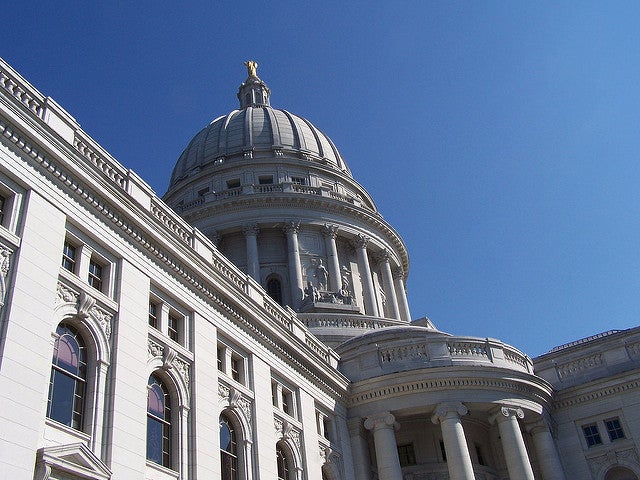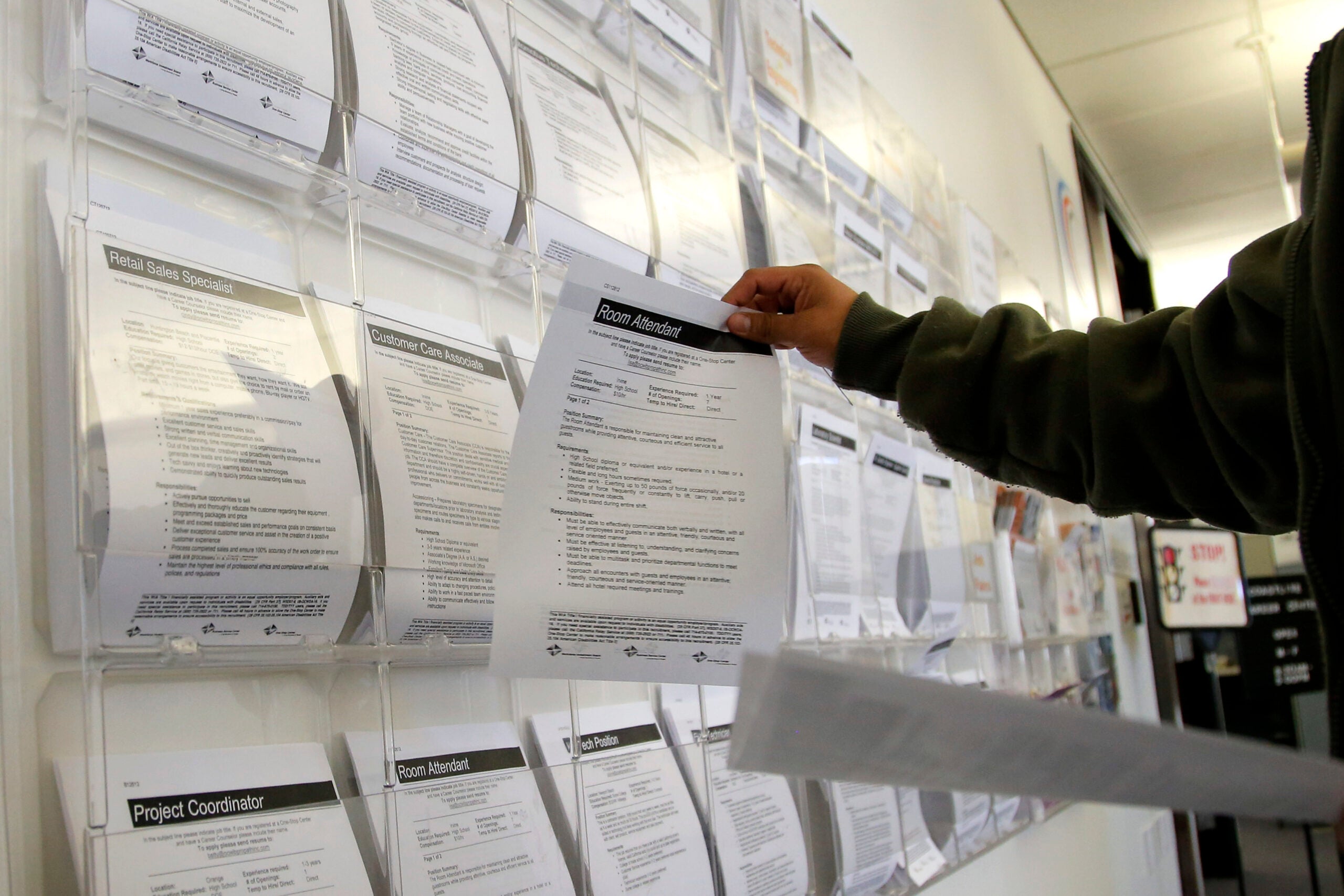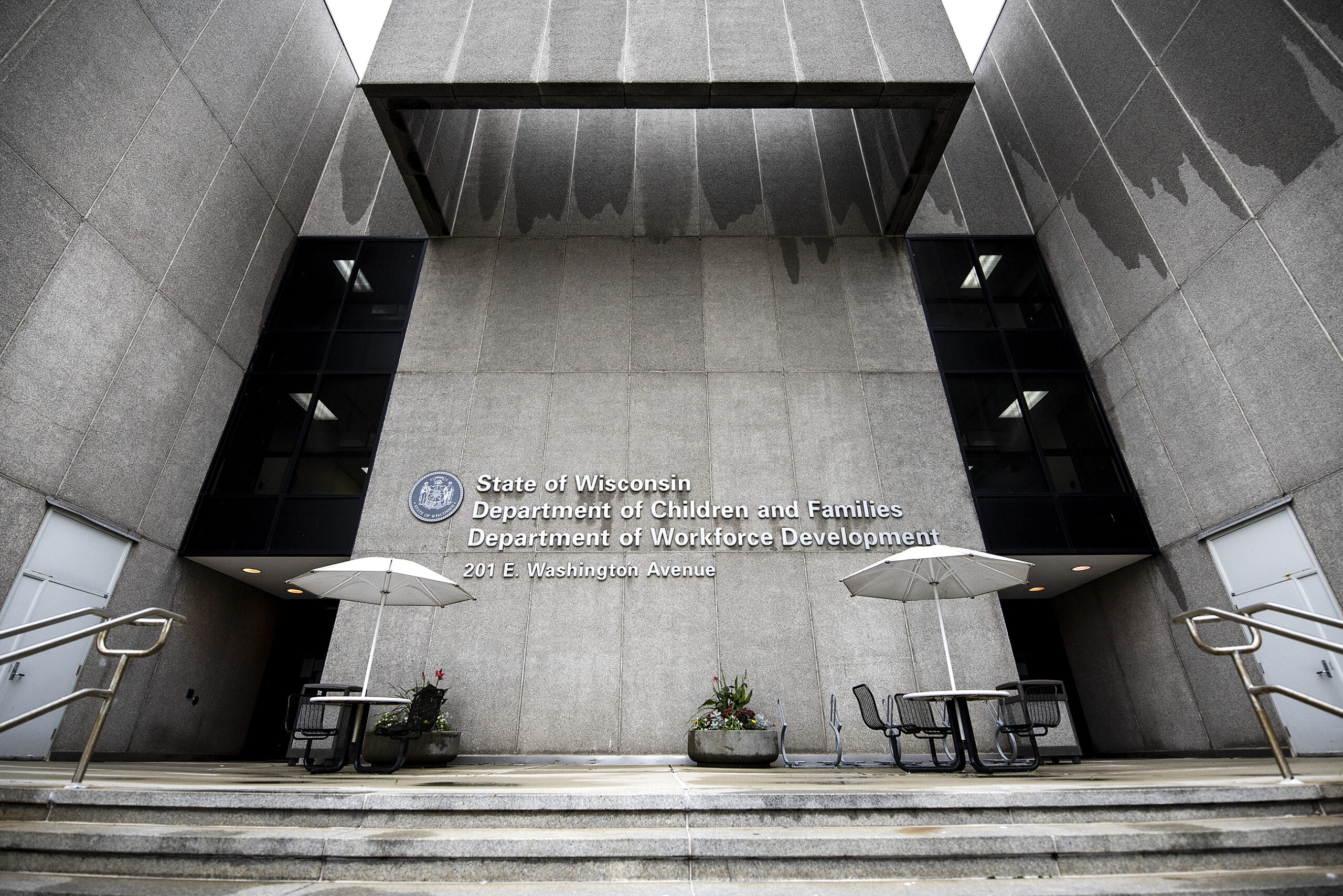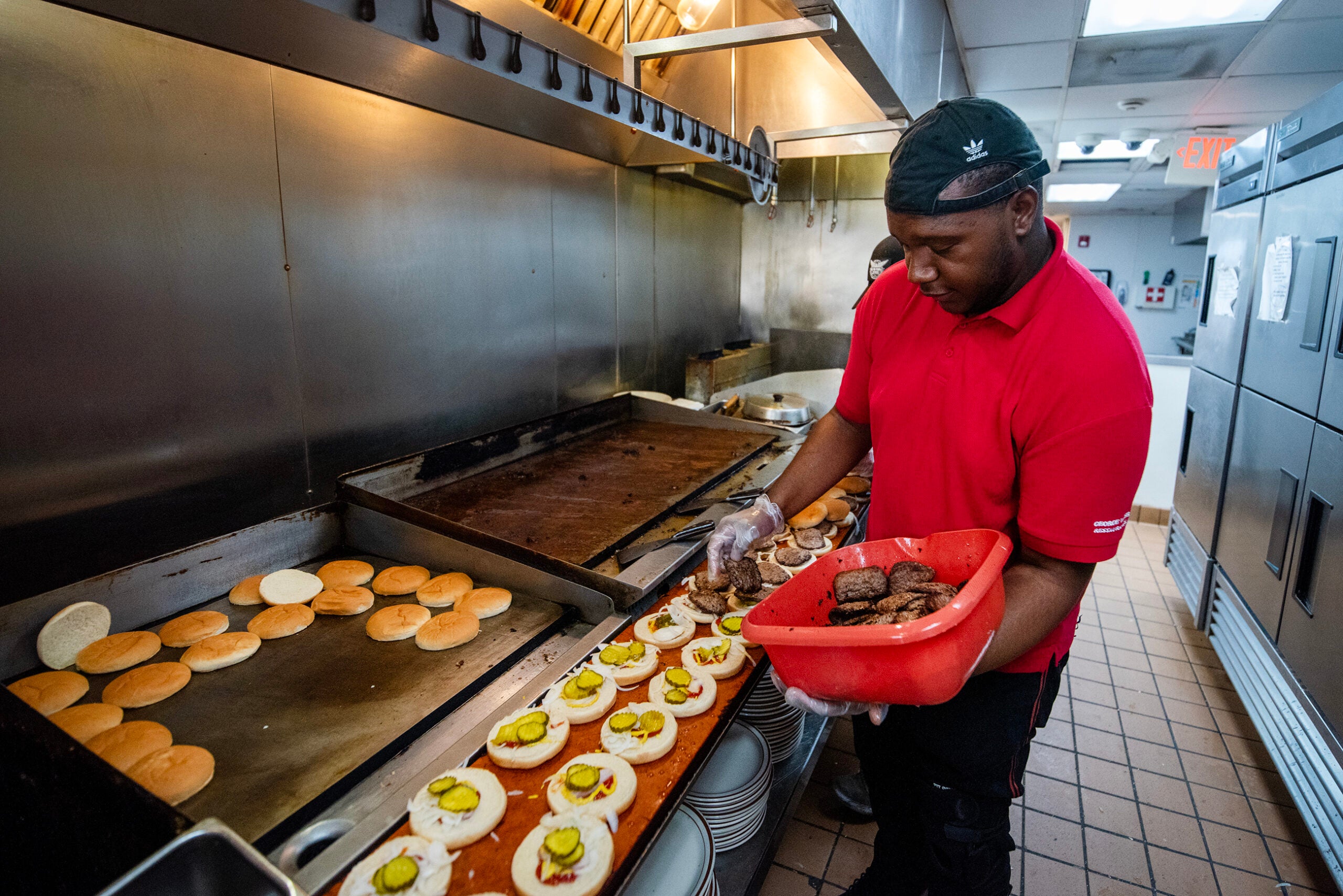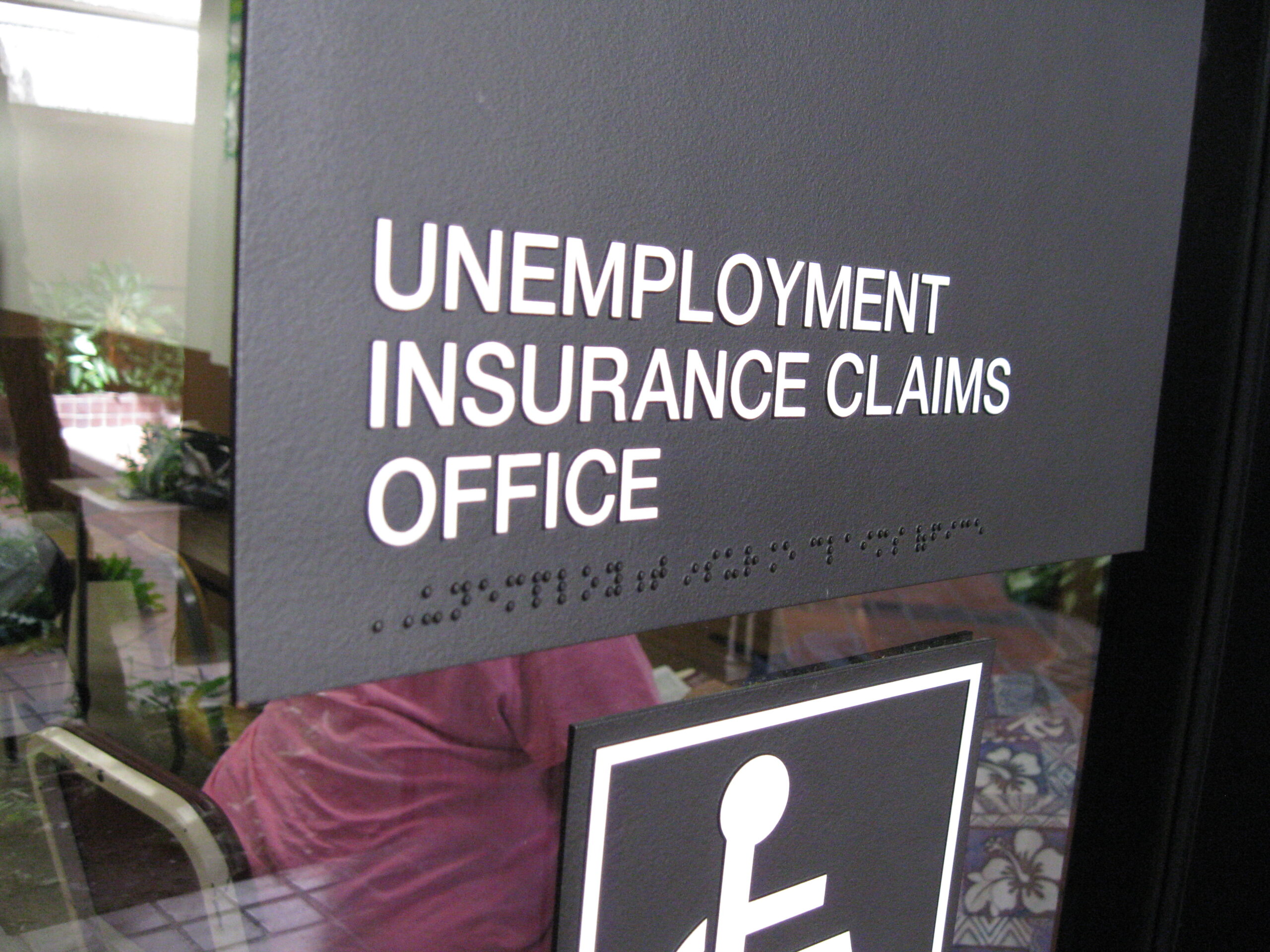Gov. Tony Evers is looking to give state unemployment benefits a bump in his upcoming state budget and lower qualifying barriers.
The plan would raise the maximum rate an employee can receive after losing a job from $370 a week to $406. If it passes, it would be the first time Wisconsin has increased the maximum rate for unemployment since 2014.
Unemployment insurance covers a calculated percentage of wages, typically about 50 percent of earnings up to the maximum rate, for up to 26 weeks.
News with a little more humanity
WPR’s “Wisconsin Today” newsletter keeps you connected to the state you love without feeling overwhelmed. No paywall. No agenda. No corporate filter.
But compared to neighboring states, Wisconsin state unemployment benefits fall short, said Sarah Halpern-Meekin, assistant professor of sociology at the University of Wisconsin-Madison’s School of Human Ecology.
“When we look at our neighbors, we certainly are providing lower unemployment benefits than people would get if they were living over the border one way or the other,” she said.
In Illinois, the cap is set at $470 and about $650 with a dependent. Minnesota sets its cap at $717.
The plan is not without its critics, who argue the changes will encourage claiming unemployment and are unnecessary given the state’s record-low jobless rate.
Yet Halpern-Meekin noted that not everyone who loses a job is eligible for unemployment benefits. For example, you have to prove past earnings reach a minimum threshold, you lost your job through no fault of your own and you must be actively seeking employment.
Other proposed changes address those barriers, including what qualifies as acceptable circumstances for losing your job and eliminating the one-week waiting period to qualify for unemployment benefits, Halpern-Meekin said.
Even in a tight labor market, the need for unemployment insurance still exists, she said.
“If you’re a person who loses your job, what you care about is can I pay my bills next week, not how tight the labor market is, so there’s the sort of immediate issue for individuals,” she said.
Then there’s the question of whether individuals take a new job because it’s a good fit, or because they are financially desperate, Halpern-Meekin said.
“When you get unemployment insurance, what it does is it allows you a little more time to search for a job that is going to be a good fit in terms of being able to provide for your family or advance your career,” she said.
Wisconsin Public Radio, © Copyright 2025, Board of Regents of the University of Wisconsin System and Wisconsin Educational Communications Board.

